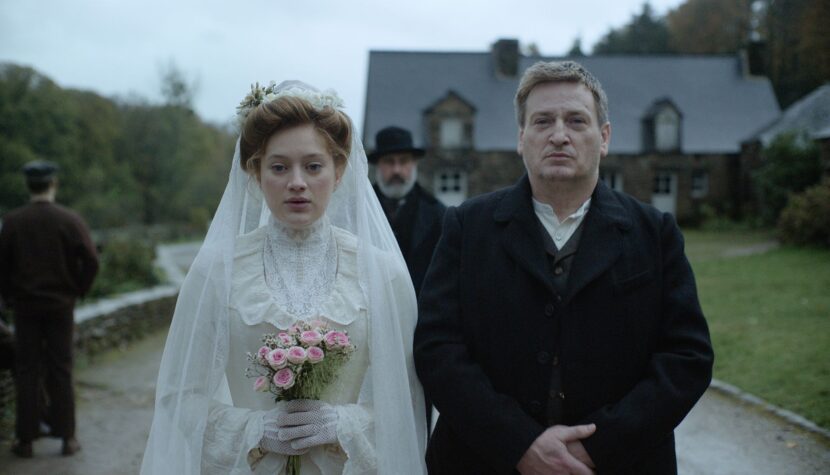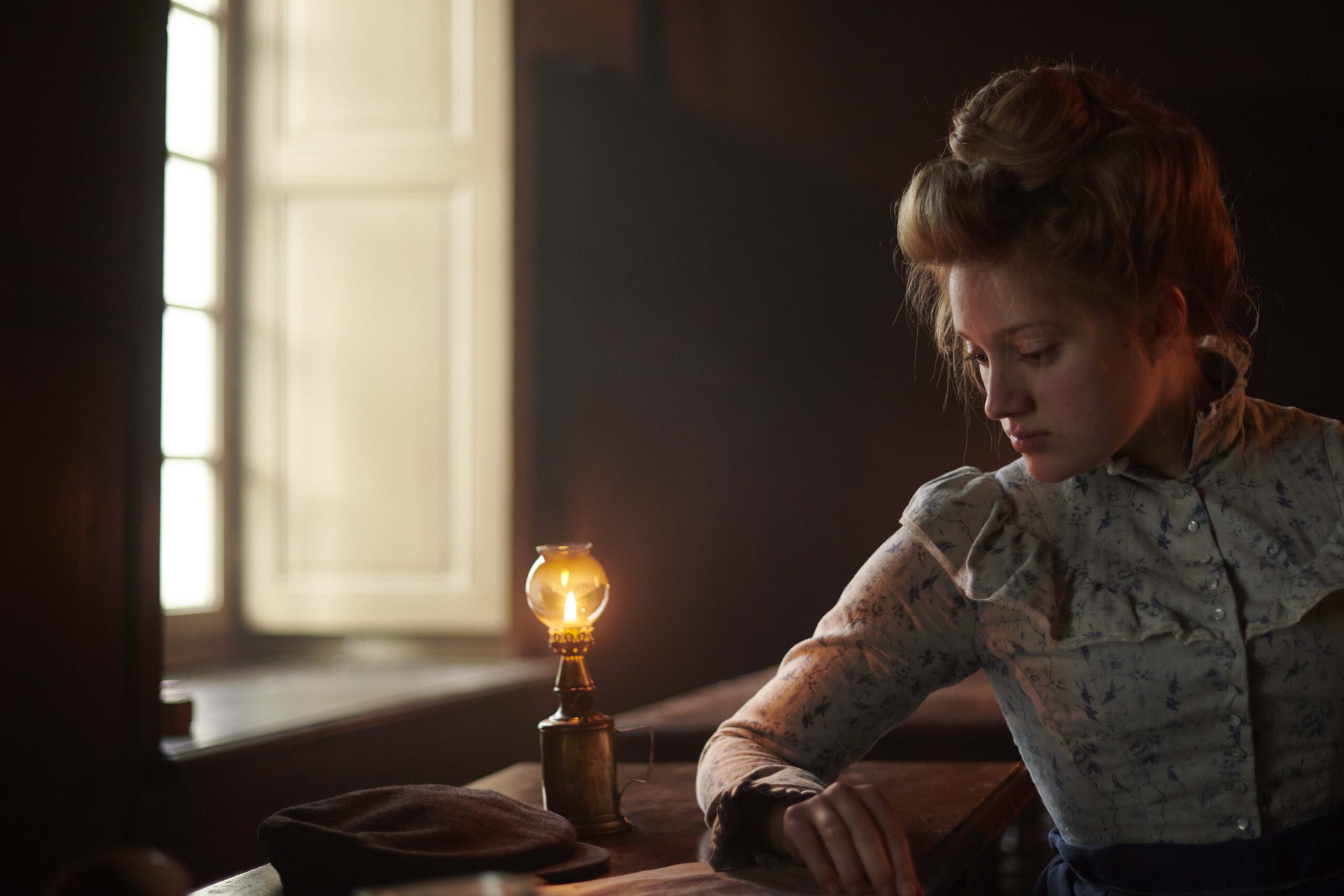ROSALIE. A Woman with a Beard in Search of Love and Self-Acceptance [REVIEW]

19th-century France, a small rural town. It’s the year 1870. Rosalie, a young woman, a shy blonde, stands before her newly wedded husband in the glow of candles. They are about to consummate their marriage. As the husband begins to untie the strings of her nightshirt, he is horrified to discover that Rosalie’s chest is covered in hair. Embarrassed, the girl immediately covers herself and recoils from her husband’s rejection. Will she be able to find love and acceptance?
Rosalie is the main character of Stéphanie Di Giusto’s new film, a few years ago nominated for major French awards (at Cannes; César and Lumières awards) for her film “The Dancer” (2016), telling the story of Loïe Fuller, a rival of Isadora Duncan. The French director has once again chosen to tell a dramatically tinged story dressed in historical costume, and it must be said that she excels in this genre.
The titular character of Di Giusto’s new film suffers from hirsutism, meaning she has excessive hair growth on her body, particularly in places more common in men than women, such as the face, chest, abdomen, back, and intimate areas. The film was loosely inspired by the life of Clémentine Delait, a woman afflicted with hirsutism, who turned her condition into an asset. She decided to stop shaving, and her hairiness and long beard attracted so many customers to her café with her husband that they quickly renamed it “The Café of the Bearded Woman.”
Rosalie’s life story is similar (played by the magnetic Nadia Tereszkiewicz). In her twenties (considered advanced age for a first marriage at that time), she is married off by her father. Abel (Benoît Magimel, known from “The Piano Teacher,” recently seen in the excellent “Rust and Bone” and other passionate roles), a former soldier in his forties with debts, who runs a bar in the town, becomes her husband-to-be. He agrees to marry Rosalie for the dowry offered by her father, only learning of the girl’s unusual condition on their wedding night. Excessive hair growth has plagued Rosalie since childhood, hidden from the world for most of her life by her father.

Initially devastated by her husband’s rejection, especially as she desperately desires a child, Rosalie seeks to win his affections and tries to help him out of debt. To achieve this, she decides to embrace her hairiness instead of shaving—growing a beard that piques the interest of the neighbors. Naturally, in the conservative society of the 19th century, she cannot escape ostracism, but with her warmth, openness, and joyful disposition, she captivates the townspeople, who eagerly visit the café—initially to see the “oddity,” but later drawn by the magnetic personality of the co-owner. This portrayal of Rosalie is thanks to the phenomenal, talented Nadia Tereszkiewicz, who steals every second of the film.
For the Finnish-Polish actress, this is another role in a Stéphanie Di Giusto film. After “The Dancer,” she captivated audiences in Dominik Moll’s original thriller “Only the Animals,” and for her role in the comedy-drama “Forever Young,” she received the César for Most Promising Actress. Tereszkiewicz portrays Rosalie with immense grace and delicacy, depicting the complex character with subtlety. The portrayal of her with a long beard creates a surprising contrast with the actress’s girlish beauty—strawberry blonde hair, large blue eyes, and fair complexion. Thanks to Di Giusto’s direction and her female gaze, the beard does not turn Tereszkiewicz into a comedic caricature or detract from her beauty; instead, it blends with her so naturally that we accept it as a given. This aids in engaging the viewer in the story, although the film’s narrative doesn’t always flow smoothly, sometimes getting bogged down in script meanderings. A significant asset of the film, and an interesting detail for Polish viewers, is the music composed by Polish artist Hania Rani.
“I refuse to live a childless life,” Rosalie declares to Abel during their first meeting. Dreamily thinking of her future child, she says, “There must be something. To be loved unconditionally.” This desire governs Rosalie’s life as she continually seeks the love and approval of others—her father, husband, neighbors. Rosalie’s decision to step out of the shadows and stop hiding, to show herself to the world as she is, without shame, is something we all understand well. The inability to fit into prevailing standards of beauty is a topic close to every woman who has ever wanted to be different—thinner, thicker, taller, shorter, with a larger or smaller bust, smoother skin, or denser hair. Rosalie joins the ranks of films that tell the stories of excluded, marginalized characters who reclaim their voice and their place in history, becoming a tale that is thoroughly modern and universal in its message.

